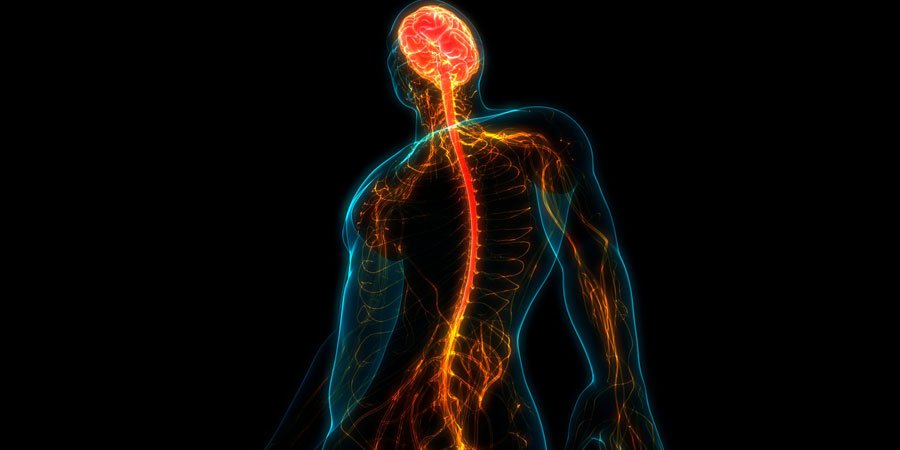How bespoke spinal cord injury care can contribute to living a fulfilling, active, and independent life

A spinal cord injury can be life changing for both clients and families. Facing a long-term condition requiring significant specialist rehabilitation and care, typically outside of a family’s expertise and capacity, can be overwhelming.
A cohesive rehabilitation and care programme can help clients return to the highest level of function and independence possible, while improving the overall quality of life – physically, emotionally, and socially. When this is combined with the right live-in clinical care, clients can continue to stay in their own home, and lead fulfilling, active, and independent lives.
What is a spinal cord injury?
Spinal cord injuries are usually caused by trauma; but can also occur as a result of infection or a disease. The spinal cord is made up of nerves that run through the backbone and help control the body’s muscles, enabling a person to move their body, feel pressure and control vital functions such as their breathing, bladder, and bowels. When the spinal cord is damaged, messages travelling from the brain to the rest of the body are disrupted and can result in a loss of sensation and movement from below the point of injury. Each spinal cord injury is unique with individuals suffering varying degrees of sensation and loss of mobility.
Bespoke spinal injury care service
At Eximius, we provide a bespoke spinal cord injury care as part of our Live-in Clinical Care service. We can create an individual care plan tailored to meet the physical, emotional and social needs of you or your loved one. Our nurse-led clinical care team work with other health professionals, such as discharge teams, occupational therapists, neurologists, and specialist consultants to ensure all equipment and person-centred care planning is in place. This can include:
Diet and hydration
- Diet and hydration are closely monitored with support provided for eating and drinking, dependant on what levels of spinal cord injury the individual has sustained.
- If a client has difficulty swallowing (dysphagia), fluids and solids can be modified accordingly.
- Our team is trained in PEG tube or nasogastric feeding.
Continence care
- The input and output of catheter day bags and night bags, alongside the colour of urine, are observed for expected activity and any visible signs of infection.
- Catheter tubing is regularly examined to check there are no kinks or bends or catheter bypassing.
- A spinal cord injury can disrupt communication between the brain and the nerves in the spinal cord that control bowel function. Bowel dysfunction is known as neurogenic bowel. Treatment options that can help improve control for bowel movements include diet, fluid intake, medication, and nerve stimulation.
Manual handling
- Due to the nature of spinal cord injuries, any necessary manual handling of the client is supported by specialist equipment including ceiling track hoists, shower chairs, hospital beds, powered wheelchairs, and splints.
- Massage and physio can be beneficial to both the physical and mental health of those with spinal cord injuries and can improve circulation, muscle tone, skin elasticity, and relieve pain.
Skin integrity
- By ensuring clients are repositioned throughout the day, any pressure related areas can be relieved and monitored. We can liaise with the district nurse over any areas of concerns.
Why use Eximius?
At Eximius Care, bespoke spinal cord injury care is part of our Live-in Clinical Care service, and sits alongside our other services – Live-in Day Care, Live-in Respite Care and Live-in Night Care.
Our team is an extraordinary group of clinical care specialists who are trained to the highest level, and provide a professional, compassionate, and person-centred care service. As well as internal nurse led training, we utilise the Spinal Injury Association (SIA) and the British Association of Brain Injury and Complex Case Management (BABICM) for additional specific training.
Remaining in a home that is known and loved, surrounded by families and belongings, and living as normal a life and routine as possible can make an overwhelming difference to the quality of life for those with a spinal cord injury and their families.
If you or a loved-one would like to understand more about our bespoke spinal cord injury care or any of our services, please get in contact, we’d love to help.